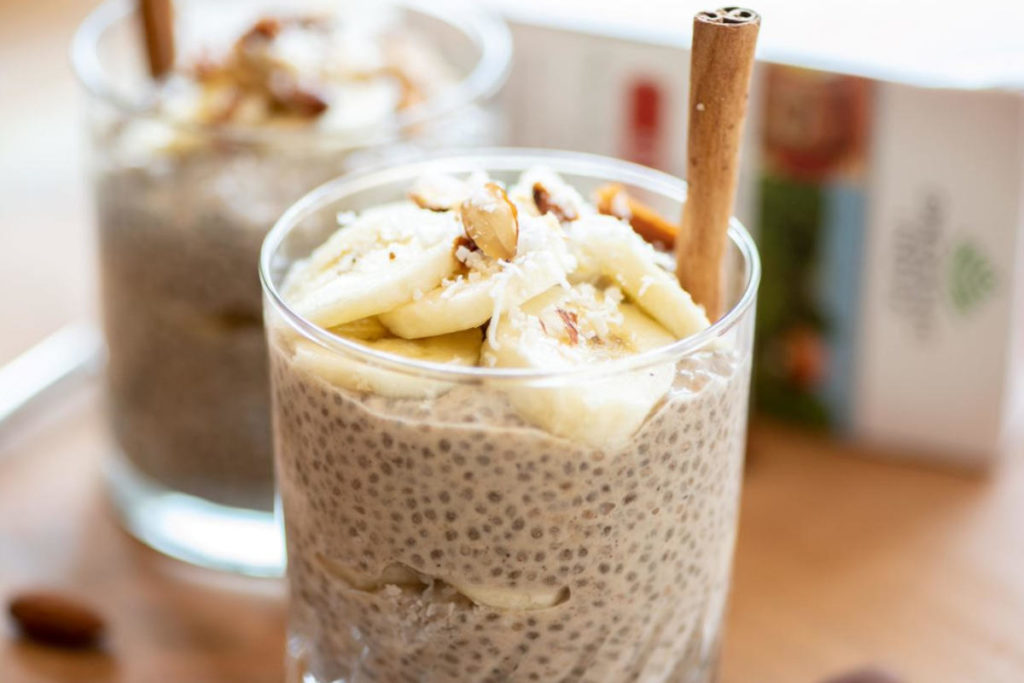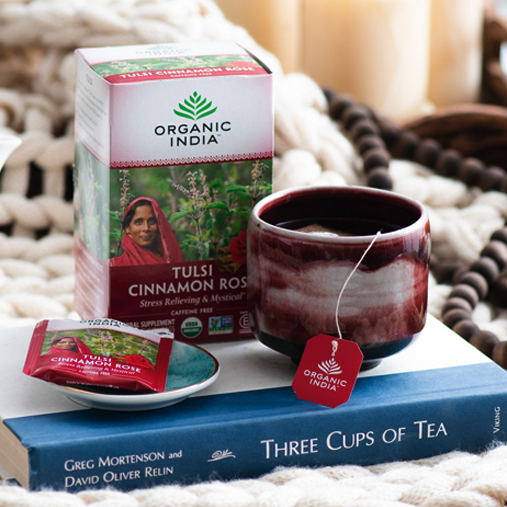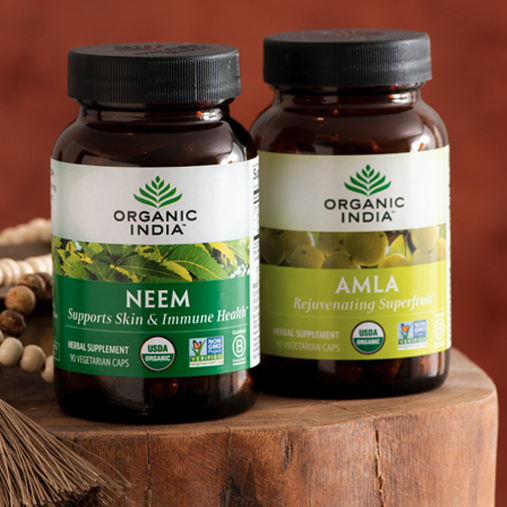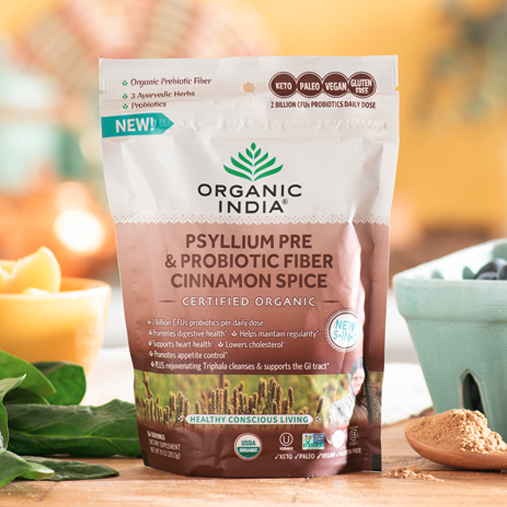Cardamom is best known for being a warming addition to teas, savory dishes and baked goods, and is widely used in Indian and Middle Eastern cuisine. The popular spice also happens to be bursting with nutrients including antioxidants, essential volatile oils, electrolytes like sodium and potassium, minerals such as iron and manganese, and important vitamins like Vitamin C, riboflavin and niacin. Nutrition content is one of the most well known cardamom benefits.
In terms of Ayurveda, cardamom is also considered tridoshic, meaning it has a balancing effect on the vata (energy of air, space and movement), pitta (energy of fire, digestion and metabolism), and kapha (energy of water, earth and lubrication) doshas (or energies).
All those amazing nutritional and energetic advantages aside, there are even more surprising cardamom benefits that will have you adding this unassuming spice to your tea, desserts and more!
What is cardamom?
But first, what is cardamom again? Cardamom is a spice made from the seed pods of the cardamom plant, a herbaceous perennial plant in the ginger family. It is often added to popular spice blends like Garam Masala and Masala Chai in India; or cooked alongside meats and rice in Middle Eastern cuisine. It is actually also used as a flavor enhancer for breads and desserts in Swedish and Norwegian baking.
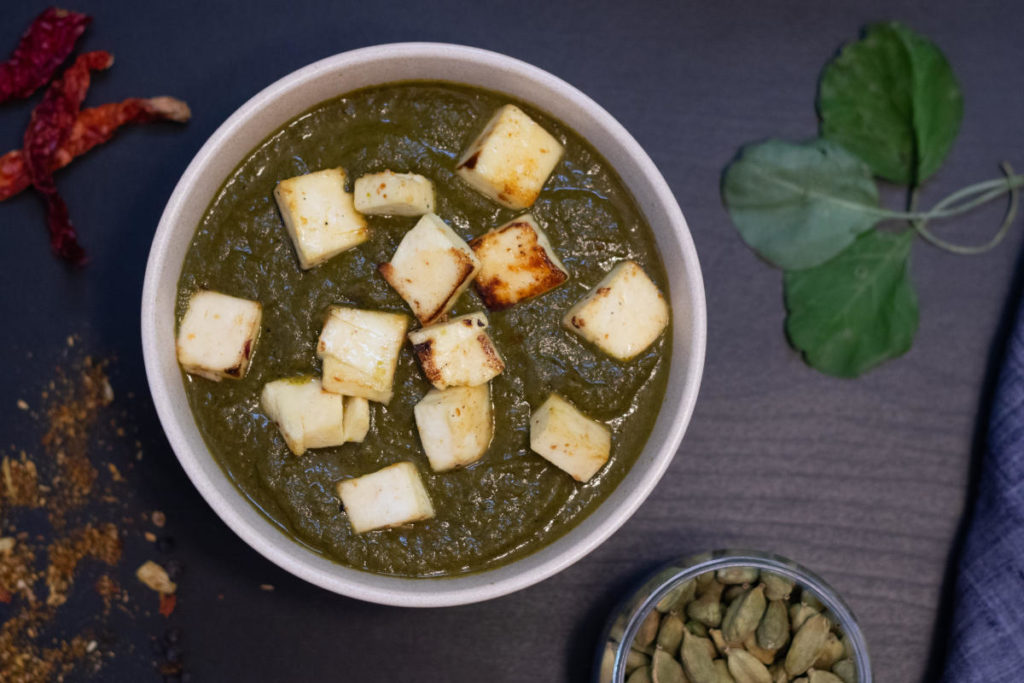
Two types of cardamom
- Green Cardamom. The first and most popular is green cardamom, a green-colored seed pod of elettaria cardamomum or true cardamom plant. It is the version you would more commonly find in the spice aisle of the supermarket and is native to Southern India.
- Black Cardamom. The other is black cardamom, a longer, brown-colored seed pod of the Amomum subulatum plant. It is less frequently used and less aromatic with a slightly different flavor profile. Also used in cooking and baking but not quite as often, it is native to slopes of the Himalayas in India and Nepal.
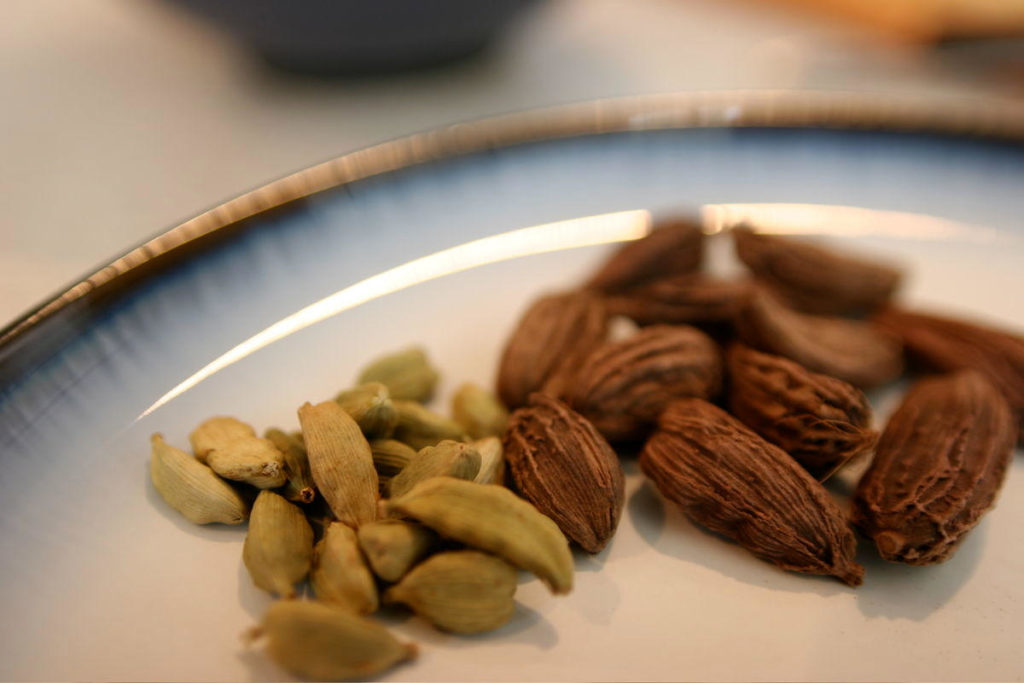
What does cardamom taste like?
Cardamom is an interesting blend of sweet and spicy, with flavor notes of herb, pine and menthol. It has a warming, calming effect on the body. Black cardamom has a similar, though less aromatic flavor profile, with a smokey, camphor-like flavor taking the stage.
5 Surprising Cardamom Benefits
With the ability to support everything from your breathing to your gastrointestinal tract to your beauty ritual, cardamom is a pretty dynamic little spice. Here are some of the most surprising benefits of cardamom.
1. Provides Respiratory Support
The Bangladesh Journal of Pharmacology published a study linking cardamom to respiratory function and bronchodilatory effect. It was found to help support normal breathing mechanisms. When used in aromatherapy, cardamom extract is also observed to help modulate oxygen circulation and uptake. Sip and breathe in the aroma of cardamom tea for respiratory support.

2. Promotes Digestive Health
In ancient Indian, Chinese and Unani systems, cardamom was used to support digestion. The spice has been found to have potential carminative function, which can help move gas out of the stomach and intestines. It also has stomachic properties, meaning it may support appetite and digestive function. The methanolic content is attributed to its soothing effect on the entire gastrointestinal tract. Add cardamom powder to food for added digestive support.
3. Nurtures Mental Wellness
Numerous studies point to cardamom’s cognitive-supporting ability. One study by the Saudi Journal of Biological Sciences points to cardamom’s potential in supporting learning, memory, mental clarity and behavior. In research published in Biomed Pharmacother, it was also found to be effective in helping relieve stress. In general, cardamom may have a balancing and clarifying effect on mood and behavior. Enjoy a comforting chai latte for an uplifting moment of peace.

4. Mediates Inflammatory Response
Cardamom contains antioxidants that not only help maintain healthy blood pressure, but also mediate inflammatory response. According to studies cited by the U.S. National Library of Medicine, cardamom extract and powder can both help protect the body and support healthy inflammatory function, likely due to the polyphenol, flavonoid, and terpenoid antioxidant content. Adding cardamom to teas, oatmeal, savory dishes and more can bring added inflammatory support to your day.
5. Supports Hair Health
Cardamom is also found to have some beautifying benefits. It can help maintain strong, shiny, lustrous hair due to its nutrient content, especially iron, calcium, potassium, magnesium and phosphorus. Not only can it help maintain hair health, it also works at cleansing and clearing the scalp of buildup. Cardamom can be used in a hair mask or rinse, but has the potential to support your locks even when part of your daily diet.

Whether in a chai latte, fragrant curry, rice dish or pre-shampoo treatment, the benefits of cardamom are plentiful. To begin upping your cardamom intake, try this easy and nutritious Tulsi Chai Chia Pudding.
